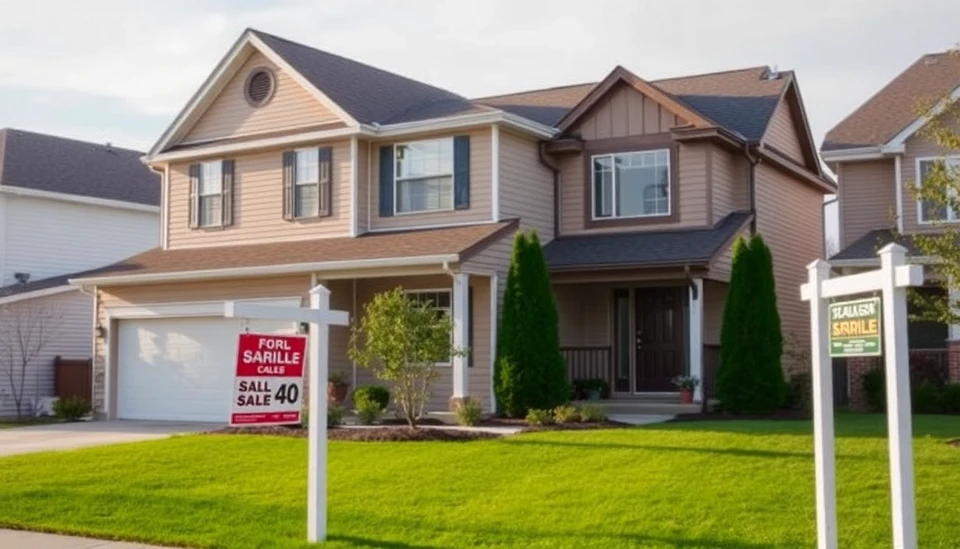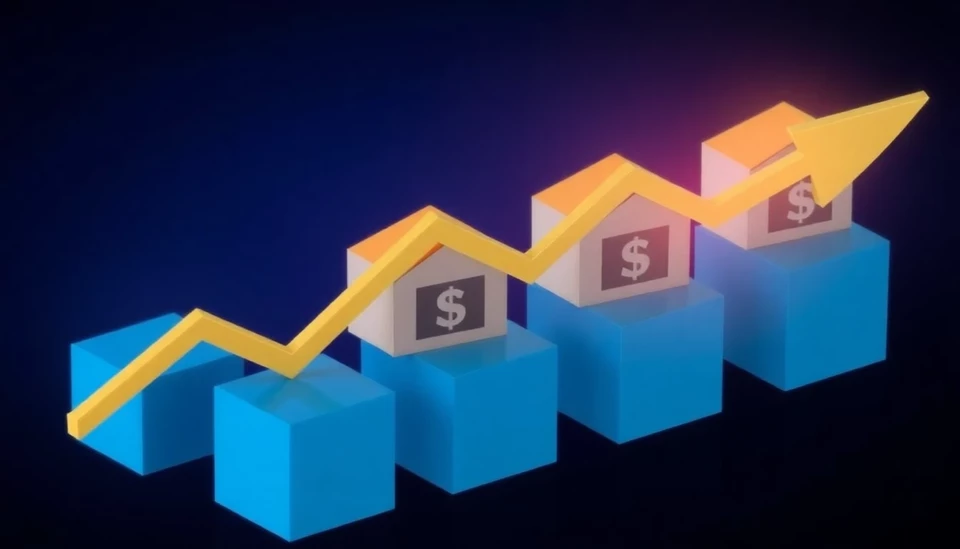
In a startling development, U.S. mortgage rates have surged significantly, marking the largest increase recorded in the past year. This sharp rise has sent ripples through the housing market, raising concerns among potential homebuyers and analysts alike. As the economic landscape becomes increasingly influenced by tariff-related uncertainties, many are left to speculate on the longer-term implications for the real estate sector.
Current data reveals that the average rate on a 30-year fixed mortgage has climbed sharply, prompting heightened anxiety among borrowers looking to secure financing. This uptrend comes in the wake of rising inflation and deteriorating market conditions, leading to speculation about future rate movements as well. Following announcements of new tariffs by the federal government, the financial backdrop has shifted dramatically, impacting various sectors beyond just housing.
The Federal Reserve's stance on interest rates has come under scrutiny as economists analyze the long-term ramifications of these tariff implementations. With the current economic climate showing signs of volatility, market participants are gearing up for potential turbulence ahead. Financial analysts anticipate that these rising rates might stifle economic recovery by making home purchases increasingly expensive for buyers, thus reducing demand in a market that has already shown signs of cooling.
As home affordability decreases, first-time buyers, in particular, might find it challenging to enter the market. The implications are profound, raising questions about the long-term trajectory of housing prices and the overall economy. Housing advocates warn that continued increases in mortgage rates could exacerbate the existing affordability crisis, pushing homeownership further out of reach for many Americans.
Furthermore, real estate experts argue that the housing market is already exhibiting signs of strain from rising costs, and the increasing mortgage rates could lead to a slowdown in home sales. If buyers retreat from the market amid these higher rates, we may see a ripple effect, influencing home construction, job creation, and even broader consumer spending.
In summary, the recent climb in U.S. mortgage rates highlights the growing pressures that tariff decisions are exerting on the economy. As the market adjusts to these changes, stakeholders are keeping a close watch on how these developments will shape the future of home buying in America. The road ahead appears uncertain, with rising rates likely to have significant ramifications for prospective homeowners navigating an already complex landscape.
In conclusion, the surge in mortgage rates not only reflects the influence of external economic policies but also serves as a bellwether of broader economic health. Stakeholders across all levels of the housing market will need to remain vigilant in the face of these ongoing changes.
#MortgageRates #HousingMarket #Tariffs #Economy #RealEstate #Homebuyers #FinancialNews #InterestRates
Author: John Harris




